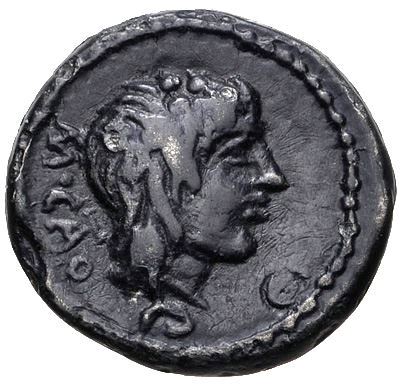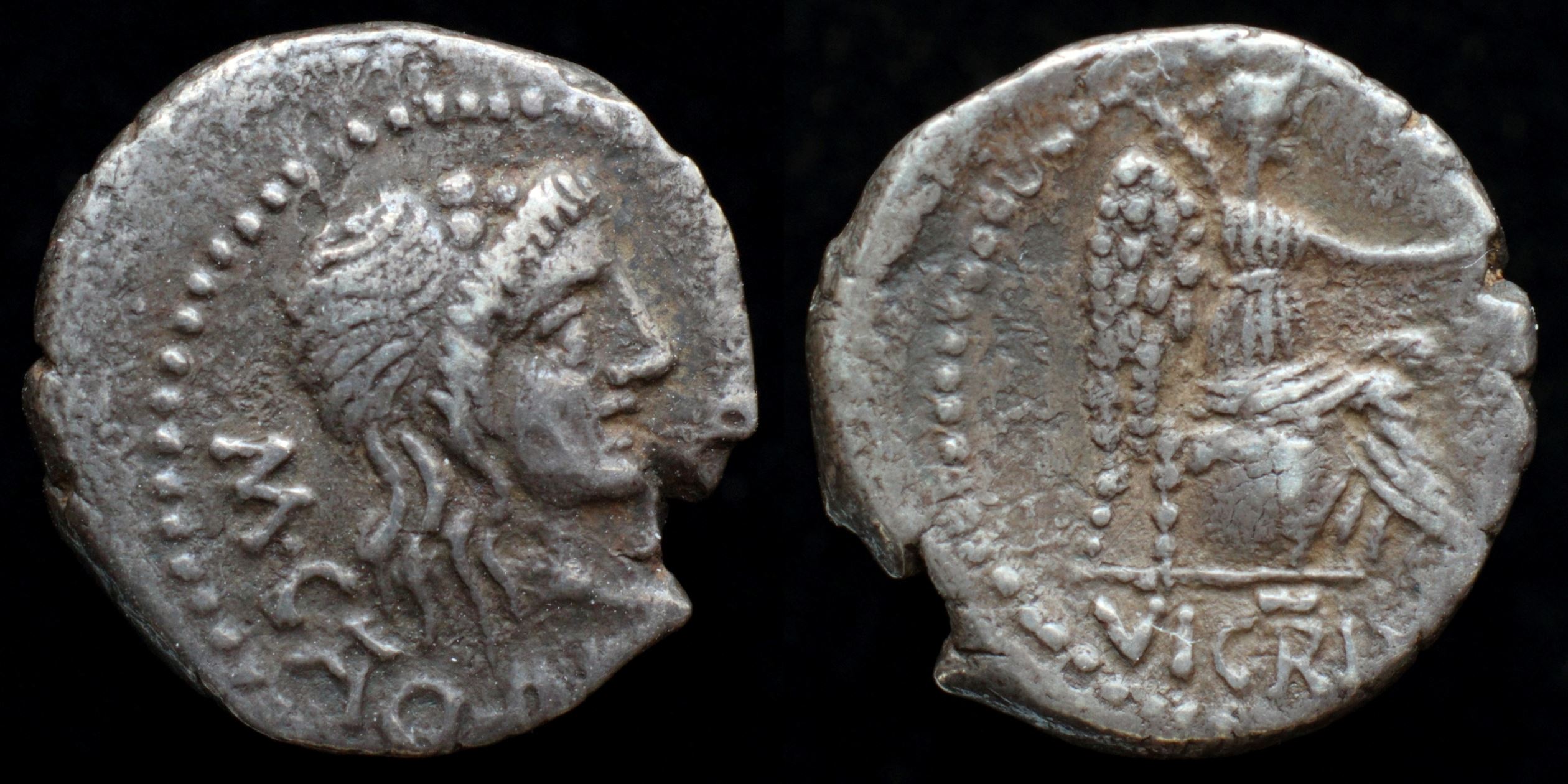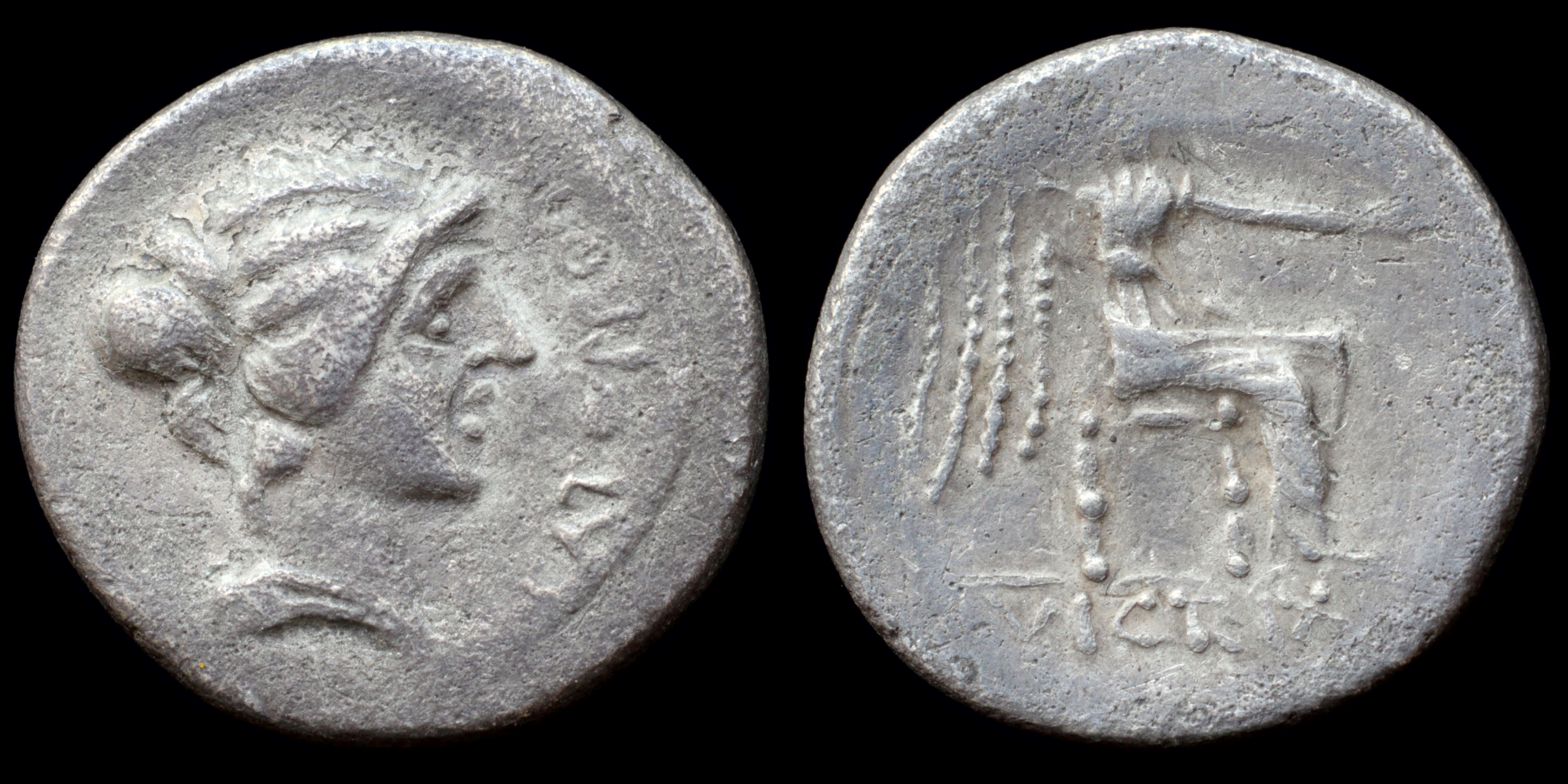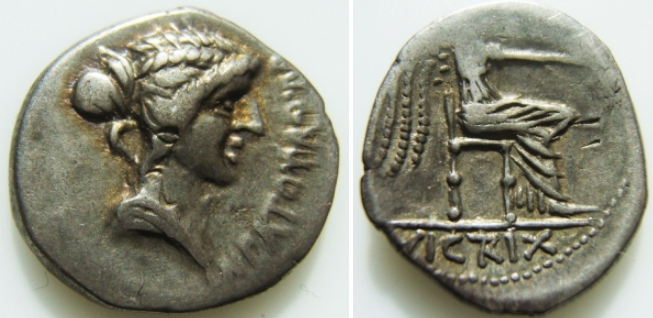Marcus Porcius Cato Uticensis, commonly known as Cato the Younger (Cato Minor) to distinguish him from his great-grandfather (Cato the Elder), was a statesman in the late Roman Republic, and a follower of the Stoic philosophy.
A noted orator, he is remembered for his stubbornness and tenacity (especially in his lengthy conflict with Julius Caesar), as well as his immunity to bribes, his moral integrity, and his famous distaste for the ubiquitous corruption of the period.
During the civil war, Cato and Metellus Scipio fled to Africa with 15 cohorts, before Caesars army. When Scipio was defeated, Cato was unwilling to live in a world led by Caesar and refusing even implicitly to grant Caesar the power to pardon him, he committed suicide in April 46 BC.
A noted orator, he is remembered for his stubbornness and tenacity (especially in his lengthy conflict with Julius Caesar), as well as his immunity to bribes, his moral integrity, and his famous distaste for the ubiquitous corruption of the period.
During the civil war, Cato and Metellus Scipio fled to Africa with 15 cohorts, before Caesars army. When Scipio was defeated, Cato was unwilling to live in a world led by Caesar and refusing even implicitly to grant Caesar the power to pardon him, he committed suicide in April 46 BC.


Obverse: head of Bacchus or Liber right wearing ivy wreath; M·C(AT)O·PRO·PR
Reverse: seated Victory right holding patera and palm; VIC(TR)IX
Diameter:
12.5 mm
Die Orientation: -
Weight: 1.8 g
Die Orientation: -
Weight: 1.8 g
"This coin was struck under Senate authority in Utica, North Africa where Cato was propraetor at the beginning of the civil war. The design is copied from an issue by another M. Cato in 89 B.C. Cato preferred to die with the Republic rather than outlive it. Defeated by Caesar he committed suicide in 46 B.C." ForumAncientCoins note
Crawford 462/2, SRCV I 1383, Sydenham 1054a,RSC I Porcia 11

Obverse: draped bust Roma or Libertas rirgt; M·CATO·PRO·PR
Reverse: Victory seated right, holding patera and palm; VIC(TR)IX
Diameter:
17.5 mm
Die Orientation: -
Weight: 3.6 g
Die Orientation: -
Weight: 3.6 g
No notes for this coin
Crawford 462/1c, SRCV 1381, RSC I Porcia 9, Sydenham 1052, BMC Africa 15

Obverse: M CATO PRO. PR - Draped female bust right.
Reverse: VICTRIX - Victory seated right holding patera, VICTRIX in the ex.
Diameter:
18 mm
Die Orientation: 3 H
Weight: 3.61 g
Die Orientation: 3 H
Weight: 3.61 g
Following Caesar’s victory at the battle of Thapsus, Cato fled to Utica along with the remaining Pompeians, where this type was struck. Having
been pursued by Caesar, Cato refused an offer of clemency and committed suicide. The reverse design recalls those of an ancestor, another M. Cato the Elder, who struck coins at Rome in 89 BC.
Crawford 462/1c; Sear, CRI 46; RSC 1, Porcia 9; Sydenham 1052.
